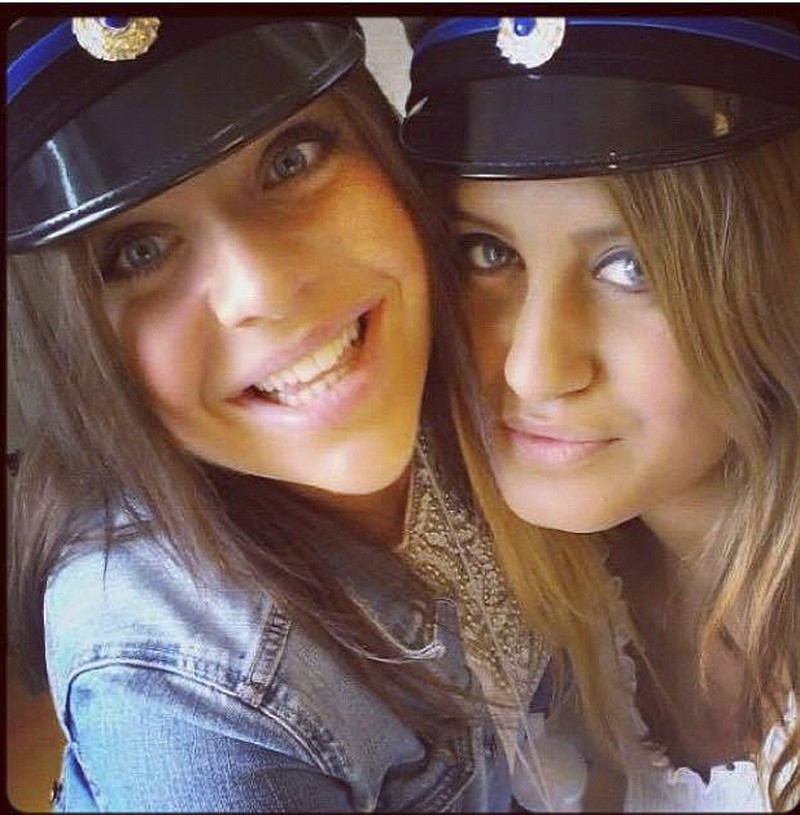STOCKHOLM (AP) - A deadly stabbing at a Swedish shelter for teenage asylum-seekers has deepened worries in this Nordic nation over violence at the refugee centers housing more than 100,000 people waiting for their claims to be processed.
Swedish police had barely issued a fresh plea for more resources to deal with the "migrant situation" when reports came Monday that a 15-year-old boy had attacked a female caretaker at a home for unaccompanied minors south of Goteborg.
Alexandra Mezher, 22, died of her stab wounds after being transported to a local hospital. Police said two other teenagers living in the shelter restrained the attacker until officers arrested him on suspicion of murder.
"It's awful. We are still waiting for her to come back. We're in shock," said Lejla Filipovic, a 22-year-old friend of the victim, who was mourning with Mezher's family on Tuesday.
Exactly what happened early Monday at the shelter in Molndal remains under investigation, but it's clear that Swedish police are facing mounting pressure to deal with brawls, sexual assaults and other problems at refugee shelters across the country.
About 163,000 Syrians, Iraqis, Afghans and others applied for asylum in Sweden last year, doubling the previous record from 2014. In Europe, only Germany received higher numbers. More than 30,000 of those seeking shelter in Sweden were unaccompanied minors, almost all boys.
While most stay out of trouble and just want to start a new life in Europe, the Swedish police authority warned that its resources have been spread thin by stepped-up border controls, the deportations of migrants whose asylum claims are rejected and efforts to maintain order at refugee shelters.
National Police Commissioner Dan Eliasson said the force needs 2,500 more uniformed officers and up to 1,600 civilian employees to deal with what he called a "new normal" in the country of 10 million people.
"Many parts of our operations are under great strain," he said.
Police logs show officers are being called to deal with problems at refugee shelters on a near-daily basis, many times involving boys or men traumatized by war and frustrated by the long and agonizing wait for their asylum claims to be processed.
Deadly attacks are relatively rare, but in August an asylum-seeker from Eritrea killed two people in an IKEA store, reportedly after being denied a residence permit.
Swedish Prime Minister Stefan Lofven traveled to Molndal after Monday's attack, and warned it may not be the last one.
"I believe quite a lot of people are very concerned that there could be similar cases when Sweden receives so many children and young people," he said.
Sweden has long welcomed refugees fleeing war and persecution but never before on a scale seen last year. Concerns are now growing that the country's welcome is reaching its limit.
Lofven's Social Democratic government was long a champion of open borders to refugees but reversed course last year and tightened border controls.
Meanwhile, the anti-immigration Sweden Democrats, a party with far-right roots that was once considered too extreme to be electable in tolerant Sweden, is gaining ground. After grabbing 13 percent of the vote in the 2014 election, it's currently polling around 20 percent.
Elaf Ali, a 28-year-old who used to work at a shelter for unaccompanied minors in Stockholm, said she wasn't surprised by what happened in Molndal.
Having arrived as a refugee from Iraq in 1991, she wanted to help other new arrivals get settled in Swedish society, but quit after a year and a half after a violent episode in 2011.
"One night one of the guys pulled out a large kitchen knife. And he ran around chasing us with it. I was very scared. I was the only girl there, so I felt vulnerable," she said. "I locked myself into an office and called the police."
She said police arrested the boy and no one was injured.
While some say only a sharp drop in immigration can resolve the situation, others are calling for more personnel at the shelters and tougher consequences for offenders.
Ali said those who commit crimes shouldn't be allowed to stay in Sweden, recalling how a Moroccan teen was sent back to her shelter despite being arrested three times for burglary or theft.
"Most of the guys are really sweet," she said. "They want to help out and they want to learn Swedish. But now and then there are guys who misbehave. Often it is those who are going to be deported who have lost all hope."
